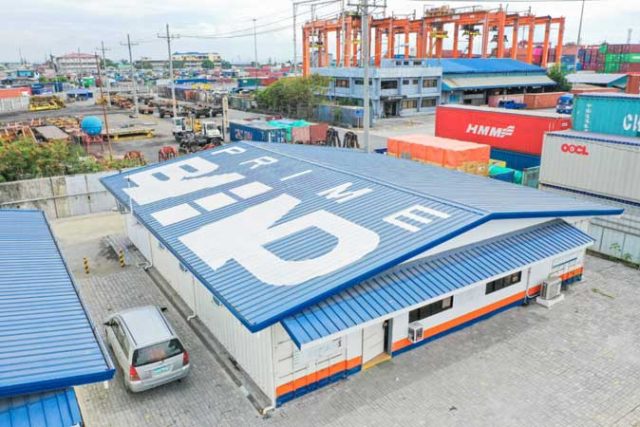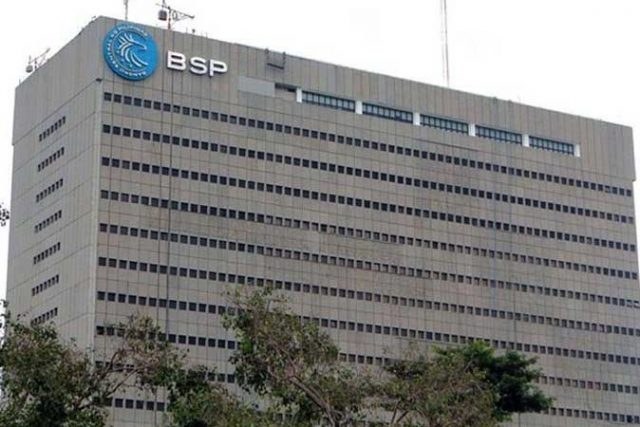Video Game Review
Ys IX: Monstrum Nox
Nintendo Switch/Personal Computer via Steam
Samurai Warriors 5
PC via Steam/Sony PlayStation 4/Nintendo Switch
YS VIII: Lacrimosa of Dana, was, on its initial release on the personal computer, an enjoyable game held back by porting limitations. It was a compelling experience that felt like it could have been much, much better sans technical concerns. Which is why Ys IX: Monstrum Nox, coming three years later, holds significant promise, pledging to bring with it all the good that has made the series a venerable one — the addictive gameplay excellent writing, among others — but without the bad that kept Ys VIII: Lacrimosa of Dana from reaching full potential.
First things first, and gamers will be pleased to know that Ys IX: Monstrum Nox now offers near-complete accessibility; it’s playable on the PC via Steam, the Nintendo Switch, the Sony PlayStation 4, and even Google Stadia, and the specific ports give up little to nothing in terms of its pluses. Franchise protagonist Adol Christin is once again front and center, and the game has you following his escape from the dungeons of Balduq, where he uncovers the Monstrum, beings with powerful abilities bequeathed unto them by a mysterious woman, and tasked to fight off monsters that only they can handle. Only by helping her cause can Adol find a way to break the curse that grips Balduq, and seal the monsters within. And, to do that, Adol will have to use his newfound powers as a Monstrum to overcome the challenges that come his way.
Naturally, this means combat, and Ys IX: Monstrum Nox’s action-role-playing-game style takes after its immediate past predecessor. You’ll be using skills and abilities to get you through combat, with Adol’s fighting style being heavily accentuated by various new Monstrum powers to help you en route. Eventually, you’ll get to master these skills, and the game heavily encourages you to use them to your heart’s content whenever possible; not doing so is tantamount to flirting with disaster. Combat in the game is fast-paced, and while it’s not overly punishing, it’s one that will constantly test your reflexes and your ability to string together combos, especially on stages with bigger challenges. Enemies on the harder game modes are much more inclined to punish you for overextending, and it’s here where you are most rewarded by a nuanced understanding the game’s combat system, especially when it comes to some particularly annoying bosses.
Exploration happens between Ys IX: Monstrum Nox’s frequent combat segments, and while its playtime is relatively short as far as Japanese RPGs go, it does its best to make Balduq feel like an exciting place to learn more of. When you explore, you’re not only finding new secrets and side quests; you’re slowly unravelling the mystery that surrounds the city, and finding out more about it in a manner that further immerses you. Each new chapter will slowly open the area you can travel in, giving you access to new dungeons and new powers. The development, in turn, leads you to delve further into the game’s story, with feedback loops combining to string you along an engrossing, if not wholly unexpected, narrative about gods and monsters.
That’s pretty much what Ys IX: Monstrum Nox promises right from the start. It’s a great, solid action JPRG experience, filled to the brim with content that will leave you wanting more. It boasts of an interesting plot, combat that will keep you on your toes, and characters that you want to get to know more about. And really, aside from the occasional crashes and iffy frame drops in some of the more crowded sequences, Ys IX: Monstrum Nox delivers what Ys VIII: Lacrimosa of Dana could not: a mostly smooth experience.
If there’s anything to critique about Ys IX: Monstrum Nox, it’s that it plays and feels a little too much like its forerunner in a lot of places. The characters, the exploration, even the combat — they all come off as much more polished iterations of Ys VIII: Lacrimosa of Dana’s components. And while it’s not a minus in and of itself, it does dull your excitement a bit.
Still, Nihon Falcom and Nippon Ichi Software have done an outstanding job, and there can be no discounting the bottom line. In the final analysis, Ys IX: Monstrum Nox gives you exactly what it promised to: an Ys story that anyone, longtime fan of the franchise or newcomer curious to try out a solid JRPG — an enjoy.
THE GOOD:
• Enjoyable, if simple, combat mechanics
• Solid story, featuring twists and turns and layered characters
• Playable on multiple platforms, underscoring its accessibility
THE BAD:
• Minor framerate issues on the Switch in handheld mode, combined with some frame drops during some of the busier in-game segments
• Combat feels like it could be expanded on
• Relatively short for a JRPG
RATING: 9/10
POSTSCRIPT: Musou titles have always been big come-ons for gamers out to find adrenaline rushes. Even as the basic foundations of Koei Tecmo’s intellectual properties have largely stayed the same, new releases have invariably been awaited with bated breath. From the first Dynasty Warriors release on the Sony PlayStation way back in 1997 to spin-off titles like Hyrule Warriors and Fire Emblem Warriors, the anticipation with which they are greeted as they hit store shelves reflects their continuing capacity to meet their value proposition.
There are, of course, differences between branches of the Musou franchise. From its release in 2004, Samurai Warriors showed the series’ tendency to be gritty and dark. Even as the tone of the series would lighten up somewhat over time, the first Samurai Warriors title set the stage for what Samurai Warriors would be like in future installments: gripping, intense, and story-driven, filled to the brim with action-packed sequences and emotional moments that would leave you invested in its characters.
Stories from the Samurai Warriors series would be largely similar from game to game, but the dramatic flair and presentation make each memorable. Not surprisingly, Samurai Warriors 5 succeeds in reinforcing the tradition. Changes have come — some good, some bad — but the soul and spirit of Sengoku Musou still beats strong.
In Samurai Warriors 5, you follow the tale of Nobunaga Oda as he rises from his station as an unknown backwater Daimyo to become one of Japan’s greatest unifiers. You cleave through hundreds of soldiers via your chosen officer, and improve his skills and prowess in combat to better prepare him for tougher encounter. It’s the classic Samurai Warrior experience in a new coat of paint. And despite its modifications, the core design still remains the same.
Each stage you encounter in Samurai Warriors 5 has you reliving key battles from early Sengoku history. With a brand-spanking-new set of active skills to play with, as well as new and expansive battlefields to roam, you may well view Samurai Warriors 5 as a novel experience and appreciate the many liberties it takes vis-à-vis the series. The departure is most felt with the roster cut and character redesign that Samurai Warriors 5 implements. Due to the more limited scope of its story, many officers from the later parts of Sengoku history do not appear. Prominent characters like Mitsunari Ishida and Ginchiyo Tachibana are nowhere to be found even in the game’s Free Mode, and in their place come such notables as Dosan Saito and Nobuyuki Oda. The personalities are certainly enjoyable, albeit far from replacing a whole roster that series veterans have grown to love.
This is especially true with the new character redesigns, as they give even the old, prominent officers a new face lift. Make no mistake: Samurai Warriors 5’s art style is actually quite good, and it takes pains to incorporate the changes with style and pizzazz. The problem, however, is in the nature of the redesign, as it touches not only on the character’s appearance, but also on the way he is controlled. Gone are the unique move sets that used to underscore the uniqueness of each character’s fighting style. Instead, new fighting styles boil down to what kind of weapon type is being used, with each character having his own preferred weapon to wield at his leisure. This might not seem so bad until you dive in deep, and realize that when characters wield the same weapon, they likewise share the same move sets — thus greatly limiting the characters’ distinctive traits.
That said, while characters in Samurai Warriors 5 do share cloned move sets, the core gameplay of the Samurai Warriors series has not degraded. At all. You’re still put under immense pressure to do well and cut through your enemies. In-game missions are still very fast-paced and rely on speed and precision to complete. This is balanced out by the abilities you’re able to use in combat, giving you powerful move sets that let you buff your attack, increase your Musou gauge, or even perform special attacks tied to a cooldown. True, the gameplay is limited by relative homogeneity, but its intensity has not been reduced, and it’s still as fun as ever.
Through all these, it bears noting that the story is a standout. Samurai Warriors 5 does a callback to Samurai Warriors: Spirit of Sanada’s more intimate, personal storylines. Experiencing Nobunaga’s personal journey might not be unique to Samurai Warriors 5, but the way it introduces its characters, events, and relationships helps in contextualizing how they behave the way they do, and even helps in empathizing with them and understanding their thought processes.
Moreover, in true Musou fashion, you are given the opportunity to enjoy Samurai Warriors 5 in Free Mode and Citadel Mode. These add a tremendous amount of extra content to play through, especially in the game’s harder-difficulty stages, during which enemies are more aggressive and rewards are enhanced. At times, Samurai Warriors 5 even feels like too much content to pore through, especially given how much grinding is required to fully max out a character, or to create a strong weapon that anyone can use. Then again, it’s all content that you can play at your leisure, and it’s not mandatory to experience the game at its fullest.
All things considered, it’s easy to say that Samurai Warriors 5 seems to have changed a lot. The flipside is that the things it changed doesn’t really impact how it plays. Not everything is perfect, but the fact that it holds true to its roots as a Samurai Warriors game ensures its capacity to give you exactly what you expect from the series, if in a more stylized, personal form. It runs smoothly on the PC and the Sony PlayStation 4 Pro, and is perfectly playable on the Nintendo Switch docked or on the go (although with some stuttering). It still promises tens of hours of entertainment, and it’s a visual treat. Samurai Warriors: Spirit of Sanada remains the gold standard, but Samurai Warriors 5 is very, very close.
THE GOOD:
• Interesting setup and take on Nobunaga’s story
• Still as action-packed and intense as ever
• Beautiful character redesigns art style
THE BAD:
• Cloned move sets and smaller roster can put off series veterans, especially if their favorites are cut
• Still requires tons of grinding in order to max out weapons/characters
• Misses some iconic characters
RATING: 8.5/10
THE LAST WORD: Preorders for Horizon Forbidden West, slated for release on both the PS4 and PS5, have begun. The much-awaited sequel to Horizon Zero Dawn has gamers continuing to follow Nora tribe castout Aloy as she treks to the Forbidden West to delve deeper into the cause of a plague that threatens humanity.
Horizon Forbidden West, an open-world action RPG slated to be played from a third-person perspective, will feature a larger map that includes familiar locations in Nevada, California, and Utah. It likewise includes underwater exploration, freeform climbing, and various other mechanics not in Horizon Zero Dawn (which, incidentally, has released a patch to enable running on the PS5 at 60 frames per second).
Meanwhile, the Idea Factory International online store has opened preorders for Mary Skelter Finale Limited Edition. The last game in the Mary Skelter Trilogy is set to hit store shelves on Sept. 30 in North America and Oct. 1 in Europe. The Limited Edition, available for the PS4 and Switch, packs the title in a collector’s box along with a steel case, an art book, a three-disc soundtrack, a boxed set of the three novels, a poster, and a trading card.
In celebration of the Disgaea series reaching 5,000,000 units sold worldwide, NIS America is holding a two-week sale of digital titles, promotions on the NISA Online Store, and a contest that has a signed print by Disgaea artist Takehito Harada as its top prize.

















